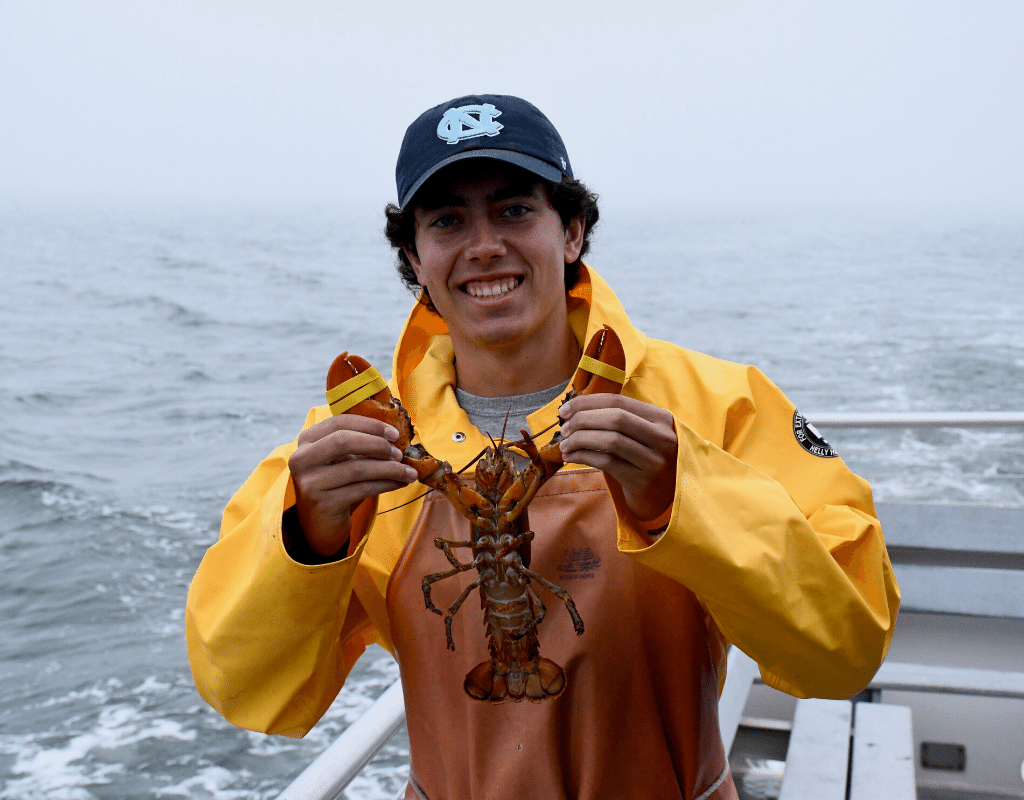
Meet Maine-eDNA: Kyle Oliveira, Graduate Research Assistant
Jane Horovitz, EPSCoR Student Writer
Kyle Oliveira grew up only 15 minutes from the coast in Brick, New Jersey. His mother is an engineer and his father is an eighth grade science teacher, so from a young age, Oliveira was immersed in STEM.
“I think I just grew up into a type of culture that fostered my love for marine science and just STEM in general,” Oliveira says.
Oliveira received his undergraduate degree in environmental science with a minor in marine science from the University of North Carolina, Chapel Hill in spring 2020. After completing an REU (Research Experience for Undergraduates) at the Gulf of Maine Research Institute (GMRI) last summer, he’s excited to now pursue a Ph.D. working on the Maine-eDNA project with researchers Nick Record, Damian Brady, and Doug Rasher.
“I really love Maine as a state,” Oliveira says. “It’s very calm and quiet, which is a lot different from New Jersey.”
For his undergraduate Honors thesis, Oliveira looked at siderastrea siderea, a common Caribbean reef coral often known as massive starlet coral. He focused on how the individual coral polyp skeletons were changing in response to ocean acidification and ocean warming. Oliveira hopes to continue this work for the Maine-eDNA project.
“I’ll be looking at species range shifts in response to oceanographic parameters that are changing, and then trying to predict where those species will be in the future with regards to climate change and other factors,” Oliveira says.
Oliveira got his first experience with species range shifts when he studied abroad in the Galapagos in April 2018. There he worked on a project where he encountered a whale shark while on a dive. When it was identified, it was recognized as the same whale shark seen in a different chain of islands, the Malpelo Islands, in September 2015. This acted as evidence of the species’ range shift.
After that experience, Oliveira knew he wanted to continue working with species range shifts in his future. Oliveira believes the Maine-eDNA project will help him pursue this research interest, while also providing the innovative eDNA analysis that will help improve his work.
“I’m really excited to get into the water, and do that comparative study between eDNA and traditional methods of surveying, like scuba diving,” Oliveira says. “I’m excited to see the differences and similarities, and draw comparisons between [the] two.”
